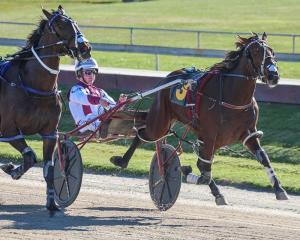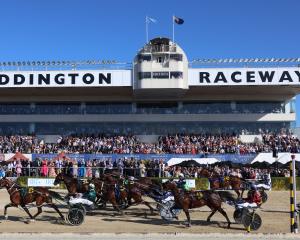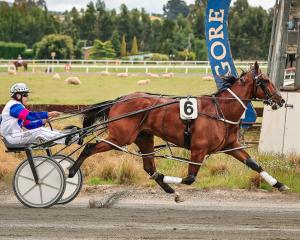
The Racing Industry Bill passed its first reading after Racing Minister Winston Peters introduced it in Parliament yesterday.
The Bill starts the second phase of Mr Peters’ drive to enact the government-commissioned Messara Report, released last year.
The report suggested several southern thoroughbred tracks be shut down and sold off, so the proceeds could boost racing coffers.
The Bill is set to give the governing body of each of the three racing codes the power to take possession of tracks that are deemed surplus to racing.
However, that does not include any that are considered a reserve under the Reserve Act.
The racing codes will be able to apply to take over the ownership of tracks owned solely by racing clubs. If the code and club cannot form an agreement, the code can apply to take the track by Order in Council.
Extensive terms for such a transfer are set out in the Bill. They include the minister considering whether the racing club or its wider community are due a payment after the transfer of their racecourse to the relevant code.
The minister must also consider whether the track is used by codes other than that of the club that owns it.
The future of tracks owned under the Reserves Act is unknown.
Several southern tracks have been slated to lose all their thoroughbred race meetings under the New Zealand Thoroughbred Racing Venue Plan.
The Labour and National parties both supported Mr Peters’ Bill through to the select committee stage.
National racing spokesman David Bennett and Clutha-Southland MP Hamish Walker both expressed their concerns about the proposed transfer process for surplus tracks.
Walker spoke of the Gore Racing Club and its Gore Racecourse, which is set to be closed.
Bennett said the legislation would create a pressure point that would force clubs to bow to their code.
The topic would be a big focus of interest for the National Party in the select committee stage of the Bill, he said.
Like Mr Peters’ Racing Amendment Bill, which paved the way for the Racing Industry Bill, the minister nominated the Transport and Infrastructure Select Committee to consider it.
Mr Peters made a blunder by sitting down before he was able to speak to the legislation, which is hoped to revitalise racing. The transfer of clubs’ assets is just one part of sweeping reforms that will transform the sector.









